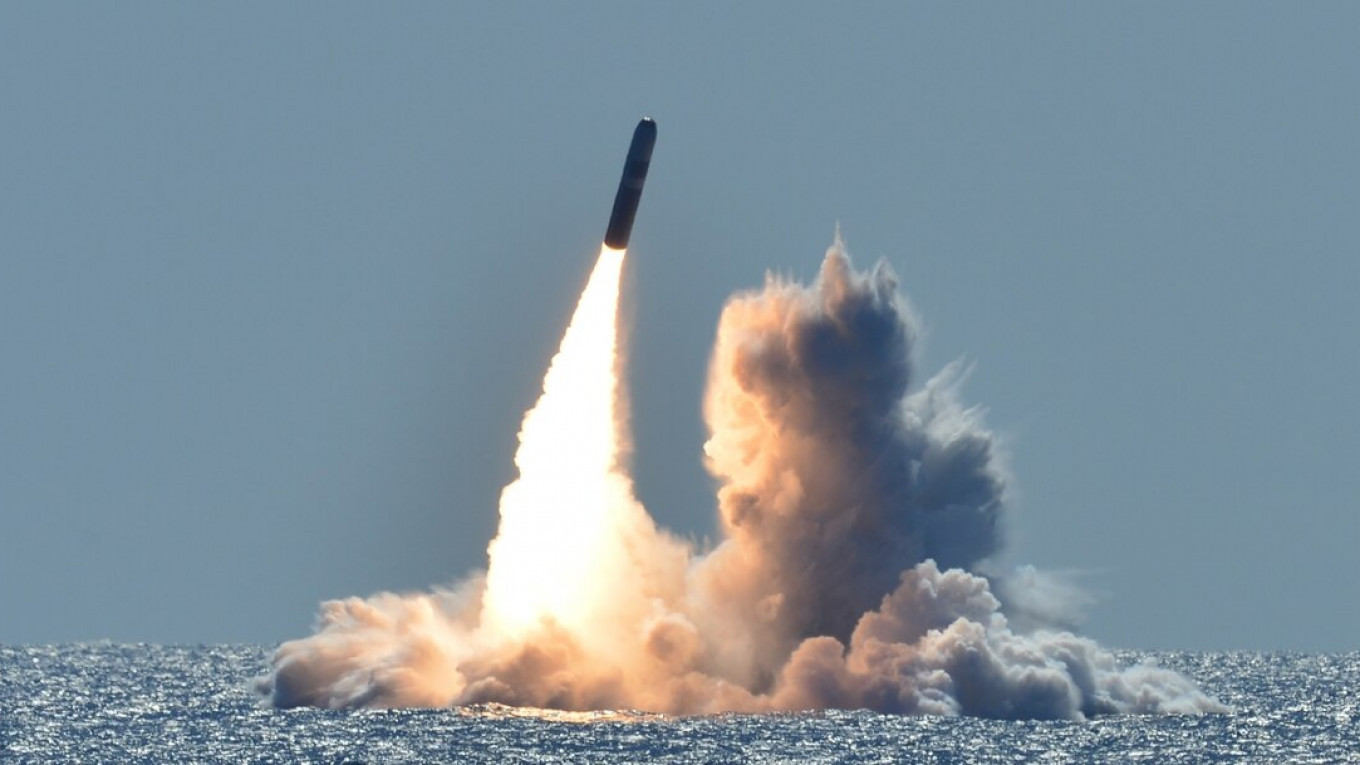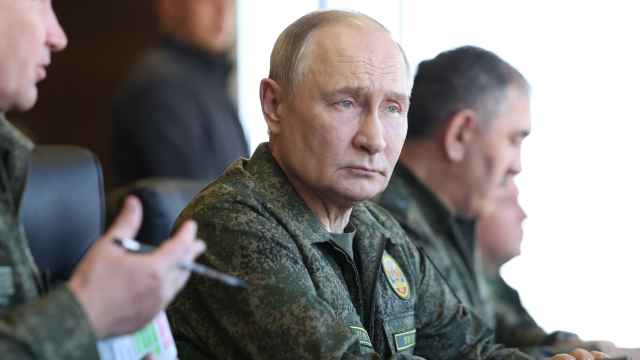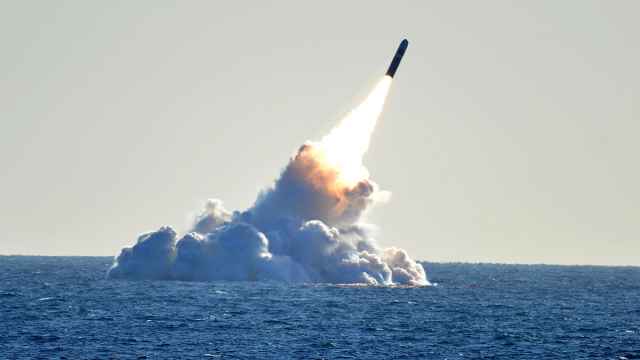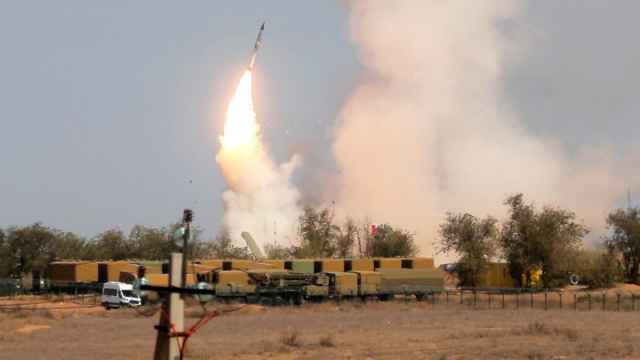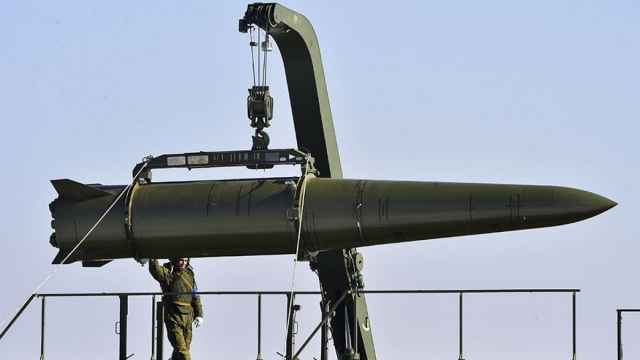U.S. President Joe Biden's administration Wednesday extended the New START nuclear treaty with Russia by five years, saying it hoped to prevent an arms race despite rising tensions with Moscow including over its imprisonment of opposition leader Alexei Navalny.
One day before the treaty was set to expire, Secretary of State Antony Blinken said the United States was extending New START by the maximum allowed time of five years.
"President Biden pledged to keep the American people safe from nuclear threats by restoring U.S. leadership on arms control and nonproliferation," Blinken said in a statement.
"The United States is committed to effective arms control that enhances stability, transparency and predictability while reducing the risks of costly, dangerous arms races."
Russian President Vladimir Putin signed off on legislation extending the accord on Friday, meaning that the treaty — signed by then-president Barack Obama in 2010 — will run until Feb. 5, 2026.
The last remaining arms reduction pact between the former Cold War rivals, New START caps to 1,550 the number of nuclear warheads that can be deployed by Moscow and Washington.
Former president Donald Trump's administration tore up previous agreements with Moscow and unsuccessfully sought to expand New START to cover China, whose nuclear program is rapidly growing but remains a fraction of the Russian and US arsenals.
Late-term talks broke down as the Trump administration insisted on tougher verification and said the treaty should do more to address so-called tactical weapons — the type that Russia could use in hot spots near its borders, a more likely scenario than a long-range attack on the United States.
Blinken said that the United States would use the coming five years to pursue diplomacy that addresses "all" of Russia's nuclear weapons and to "reduce the dangers from China's modern and growing nuclear arsenal."
Pressure on Navalny
The Biden administration had already made clear it would extend the treaty but at the same time made clear that it would press Russia on other areas — the mirror opposite approach of Trump, who controversially voiced admiration for Putin.
Blinken on Tuesday demanded that Russia free Navalny "immediately and unconditionally" after Putin's most vocal critic was handed a prison term.
Russian authorities have rounded up more than 10,000 people who came to the streets in support of Navalny, who returned to Russia after what doctors said was a poisoning and proceeded to reveal alleged corruption by Putin.
Biden has also ordered U.S. intelligence to investigate Russian meddling in US elections, Moscow's alleged bounties on U.S. troops in Afghanistan and its purported involvement in the massive SolarWinds hack.
Blinken said that even while engaging Russia on arms control, "we remain clear-eyed about the challenges that Russia poses to the United States and the world."
NATO welcomed the extension of New START, saying it would preserve international stability even as the United States keeps negotiating with Russia.
"This the beginning, not the end, of an effort to further strengthen international arms control," NATO Secretary General Jens Stoltenberg said.
EU foreign policy chief Josep Borrell said that the extension "limits strategic competition and increases strategic stability."
The Russian Foreign Ministry welcomed the extension of New START and said it hoped that Biden was turning the page on the "destructive U.S. policy" of ending arms control measures.
The ministry added in a statement that "significant efforts will be required" to get US-Russian dialogue on arms reduction back on the right track.
"Russia is ready for such work," it said. "We call on the United States to show an equally responsible approach and respond constructively to our respective initiatives."
A Message from The Moscow Times:
Dear readers,
We are facing unprecedented challenges. Russia's Prosecutor General's Office has designated The Moscow Times as an "undesirable" organization, criminalizing our work and putting our staff at risk of prosecution. This follows our earlier unjust labeling as a "foreign agent."
These actions are direct attempts to silence independent journalism in Russia. The authorities claim our work "discredits the decisions of the Russian leadership." We see things differently: we strive to provide accurate, unbiased reporting on Russia.
We, the journalists of The Moscow Times, refuse to be silenced. But to continue our work, we need your help.
Your support, no matter how small, makes a world of difference. If you can, please support us monthly starting from just $2. It's quick to set up, and every contribution makes a significant impact.
By supporting The Moscow Times, you're defending open, independent journalism in the face of repression. Thank you for standing with us.
Remind me later.


